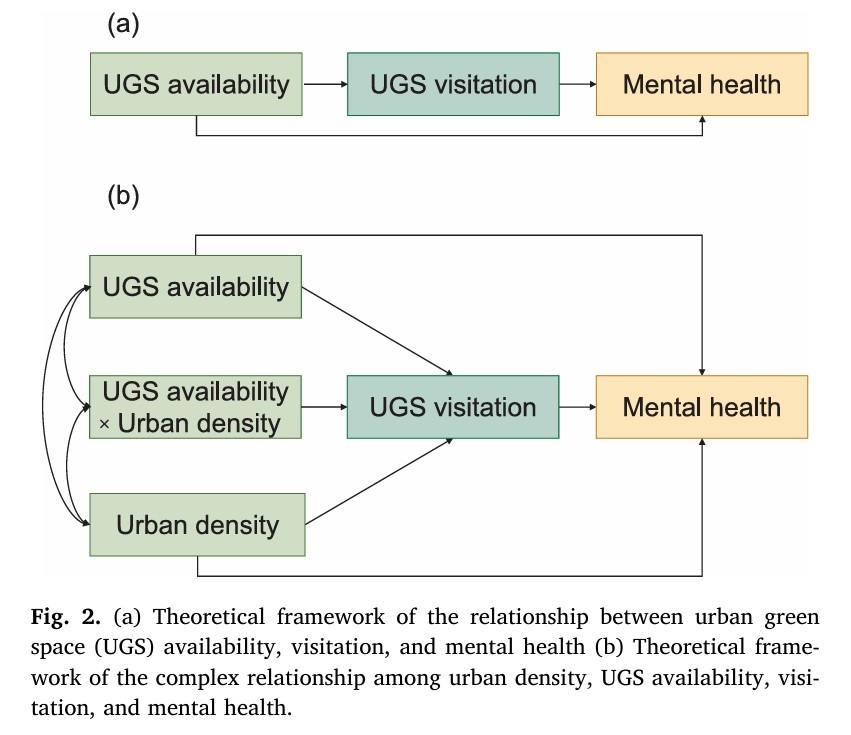Greenspace exposure and its dual role as mediator and moderator in the relationship between urban density and mental health
Mental health has become a pressing global challenge, accounting for 32% of the global burden of life-threatening diseases. The COVID-19 pandemic further intensified this crisis, with a 25% increase in the prevalence of anxiety and depression worldwide. Urban residents are particularly vulnerable, facing risks associated with environmental pollution, social isolation, stress, and limited access to urban green spaces (UGS). While mental health is shaped by individual, social, and socioeconomic factors, the built environment has gained increasing attention for its potential to influence population-level health outcomes.
Based on survey of 824 respondents in Guangzhou, China, this study addresses a critical research gap by examining the dual roles of UGS exposure in the urban density–mental health relationship. Specifically, UGS visitation functioned as a mediator, while UGS availability served as a moderator. The findings reveal that: (1) Urban density exhibited context-dependent effects: its impacts on three mental health indicators (depression, life satisfaction and sense of worthwhileness) hinged on UGS availability. (2) Visiting community gardens, municipal parks, and waterfront UGS was particularly effective in reducing depression risk, enhancing life satisfaction, and fostering a sense of worthwhileness, respectively. Engaging with communal gardens and municipal parks was positively associated with all three mental health outcomes. The effects of UGS visitation on mental health surpassed those of UGS availability and urban density. (3) Crucially, this revealed a dual mechanism: UGS visitation fully mediated the adverse effects of high density on mental health, while UGS availability moderated this relationship, mitigating negative impacts of high urban density.
These findings provide novel empirical evidence for optimizing UGS planning: increasing UGS and its visitation can reduce the negative mental health impacts of high urban density and prioritizing communal gardens and municipal parks is advisable, given their positive effects on three mental health outcomes.
This study titled ’Greenspace exposure and its dual role as mediator and moderator in the relationship between urban density and mental health’ was published online in Landscape and Urban Planning.Associate Researcher LIU Hongxiao from the South China Botanical Garden, Chinese Academy of Sciences, is the first author of this paper. Associate Professor SUN Xiao from the School of Ecology and Environment, Renmin University of China, and Researcher REN Hai from the South China Botanical Garden, Chinese Academy of Sciences, are the co-corresponding authors. Paper link: https://doi.org/10.1016/j.landurbplan.2025.105497

(image by LIU et al)
File Download: